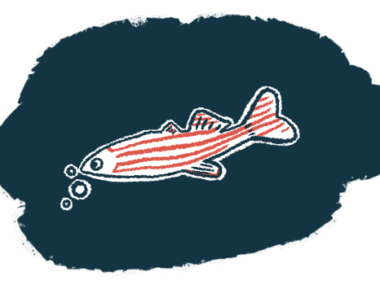Let’s Talk Victim Mentalities: Stagnancy in Life With SMA
Written by |

It’s been a minute since I put my degree in counseling to good use. Let’s change that, shall we?
Last week, I wrote about a recent ghost vacation. For those who didn’t read that column, here’s the gist: I came back from this year’s Cure SMA conference with a lot on my mind. My trip to Anaheim, California, was a wake-up call — in more ways than one.
I’ve spent the past couple of years in limbo. As with most things, there were several complicated reasons for my sabbatical. Graduating with my master’s during the pandemic. Shelving the book I’d been working on for the better part of 10 years. A peculiar cocktail of angst, malaise, and existential uncertainty. I didn’t know what to do with my life, and it showed.
I knew something was going on, in my head and in my heart. So I took it easy. From the outside looking on, it probably didn’t appear that way. Since the spring of 2020, I’ve revised a book, drafted another book, queried literary agents, and completely revised my online presence. I’ve been “busy.” But it was an aimless busyness. I was doing things for the sake of doing things, with no real end state in mind.
Then I went to Anaheim and realized that, oh, I do have a purpose in my life — and it looks like this.
Writing about SMA. Engaging with the disability community. Fighting like hell for my best friend, Sherry, who lives in Singapore and still doesn’t have access to Evrysdi (risdiplam). Putting myself into stories I love, because that’s how I make sense of life.
A week or so ago, I read an article about agency versus ambition. In it, the author identifies victim mentalities as the antithesis of agency: “[I]n order to develop agency, one needs to be psychologically ready to embrace it (i.e., change their worldview) once they spontaneously discover it. For instance, abandoning a victim mentality and being open to taking risks.” The writer goes on to define a person with a victim mentality as someone who takes things personally and engages in self-sabotage and negative self-talk as a result of low self-esteem.
The entire essay was a punch to the gut. But one line in particular stood out to me: “I was going to essentially ruin my life if I didn’t act with a sense of agency.”
Talk about a critical hit.
I should clarify that victim mentalities are not only valid, but necessary to healing. Uncontrollable life events often force us into the role of victim. It can be liberating to identify what happened to you as an unavoidable tragedy that radically altered the course of your life. But the danger of victim mentalities lies in stagnancy.
You let things happen to you.
You stop caring.
You tell yourself there’s no point, because nothing will ever change.
This isn’t to undervalue my years of sabbatical. I genuinely believe I needed that period of slowness. I needed to step back and take inventory of my life. I can’t overstate the importance of giving myself what I needed for however long I needed it.
A couple of weeks before the conference, I posted a micro-essay about giving up. I’d spent the past couple of months developing my Instagram presence with no evidence of growth. Nothing was working, so I decided I was done wasting my time on the platform.
Can you see the victim mentality in that thought process?
I stand by what I said in that post. Marginalized creators have no choice but to cater to the algorithm, if only to preserve their “brand.” This is especially problematic for chronically ill folks who have a finite amount of energy at any given point in time. Sometimes we have to give up to prioritize our well-being.
But there’s a fine line between self-preservation and self-sabotage.
I’m still figuring out what this looks like in my everyday life. But I’m emerging from the spirit realm of ghost vacations. I’m refocusing on social media — not because I have sudden faith in the algorithm, but because the conference reminded me of my purpose.
This week, I want to encourage you to interrogate your own victim mentality. In what ways do you feel victimized by SMA? How can you regain a sense of agency?
Thanks for reading! You can follow me on Twitter and Instagram, subscribe to my newsletter, or support me on Substack.
Note: SMA News Today is strictly a news and information website about the disease. It does not provide medical advice, diagnosis, or treatment. This content is not intended to be a substitute for professional medical advice, diagnosis, or treatment. Always seek the advice of your physician or other qualified health provider with any questions you may have regarding a medical condition. Never disregard professional medical advice or delay in seeking it because of something you have read on this website. The opinions expressed in this column are not those of SMA News Today or its parent company, Bionews, and are intended to spark discussion about issues pertaining to spinal muscular atrophy.





Leave a comment
Fill in the required fields to post. Your email address will not be published.